This post is also available in: Español (Spanish) Português (Portuguese)
New Strategies-Rising, a pilot program hosted by Georgetown University and supported by the W.K. Kellogg Foundation (WKKF), empowered nonprofit leaders with new skills to help them strengthen their organizations and generate funding to sustain their missions for years to come.
The inaugural conference, hosted in Washington, D.C., in late 2023, brought members of WKKF’s Global Fellows Network (GFN) together for a four-day immersive experience designed specifically for leaders of organizations serving communities of color. Ten global fellows participated in the inaugural cohort as part of the GFN’s commitment to help its members strengthen their skills and expertise for greater community impact.
Through a mix of keynote addresses, breakout discussions and practice sessions, fellows learned how to grow revenue for their organizations and developed specific skills like how to deliver compelling stories, develop a board of directors, manage a donor system and more.
Building confidence
Tina Garcia-Shams, who directs the Street Food Institute in New Mexico, saw New Strategies-Rising as a watershed moment for her training and workforce development program for aspiring small food business owners. Garcia-Shams needed financial support to assist with the expenses of a new communal kitchen and education space, but she had never approached individual donors before. Attending the conference gave her a fresh perspective on her approach to fundraising.
“I came out of it thinking fundraising is about providing an opportunity for somebody to be involved in this amazing work that we’re doing,” she reflected.
Since the conference, Garcia-Shams has been hosting tours of the new kitchen with potential donors and highlighting how important the project is to a historic neighborhood of Albuquerque that has seen little investment yet offers incredible opportunity for community development.
Similarly, when Cuong Q. Huynh received an email from the GFN about New Strategies-Rising, he thought it was perfect timing: “I have some experience with foundations and governments, but I needed the courage to apply to corporate foundations for funding.”
Huynh helps lead Rende Progress Capital, a community development financing group that offers affordable small business loans and technical assistance to underrepresented and immigrant entrepreneurs across the country. After the training, Huynh wasted no time in seeking funding from the Walmart Foundation and another corporate foundation. He credits the conference with boosting his confidence in pursuing partners from various sectors.
“It was very intentional for nonprofit leaders of color given that we have different issues, causes and missions. And I thought they were able to tackle each of our missions and listen to our challenges with care,” said Huynh.
Navigating challenges
Von Gordon, the executive director of the Alluvial Collective in Mississippi, has been leading a transformation within his organization. This includes a name change and an expansion of its mission. The Alluvial Collective works to end discrimination and oppression, while fostering stronger connections within communities and systems to promote collective well-being. The forum opened his eyes to fresh opportunities to leverage this moment of change.
“One of the most amazing things about the experience is they raised a lot of opportunities that I had not seen, and none of the people I’d had conversations with about the challenges before us had raised,” said Gordon.
Lisa María Rhodes, executive director of ALAS in New Orleans, was operating in a startup-like environment and struggling to find balance. ALAS equips youth and educators to eliminate barriers to education, career and freedom with and for youth affected by criminal, legal and/or immigration courts.
“My biggest challenge involved navigating the hiring process and establishing communication and expectations with a new team. It’s a constant puzzle, fearing the risk of over-promising and under-delivering as our team expands,” she said.
The conference helped her find funding streams she didn’t know were available to ALAS. “I learned just how many avenues there were to reach out for more financial support for my organization and how to maximize what I am already doing,” she said.
New Strategies-Rising did not just provide opportunities to learn, but also tools to act. Following the conference, all attendees received a personalized 90-day workplan, accountability partners and an opportunity to practice pitches with prominent philanthropists.
“Getting feedback firsthand and in person allowed for very exact areas in which I could improve and where I was showcasing ALAS in the best way,” said Rhodes.
Deepening bonds
Participating in the conference with other fellows offered a unique benefit to attendees, who had already built deep relationships and a safe community that allowed them to be vulnerable together.
“Every opportunity I have to be in a space with fellows is like a gift to me,” said Gordon. “One of the things that you’ll find common among all the fellows is that we want to see the best practices, the best impacts happen globally.”
“With an array of expertise and experiences in the nonprofit and youth leadership sectors, I was able to glean so much knowledge from other fellows and create a great support network,” said Rhodes.
Driving change
New Strategies-Rising helped fellows build on the critical work they’re doing in communities to foster racial healing and advance racial equity — work born out of their personal journeys.
Garcia-Shams’ identity as an 11th generation New Mexican drives her passion for the Street Food Institute: “I have deep, deep roots in this place. What keeps me in this work is being a part of someone’s journey to realize their dream and being able to provide an opportunity and take away as many barriers as I can to allow them to reach their potential.”
For Huynh, it’s knowing what it’s like to feel like you don’t have a voice: “I know what it’s like to be poor, to be marginalized, to be disadvantaged and to be voiceless. All that drives what I’m doing because, especially as a born refugee and coming from a different country, no one will speak for us. So, I get to speak for folks who don’t have a voice.”
Rhodes is inspired by her mother, who came to the U.S. from Columbia as a single parent and worked hard to provide educational and career opportunities for her children. “I am a first-generation Colombian American from a family with mixed legal status. Like our students, many of my family members haven’t had the opportunities they have worked hard for,” reflected Rhodes.
“What I’m passionate about is connecting people,” said Gordon. “It’s an important part of who I am, of the work we do and why I’m here every day. I want to see more Von Gordons in positions like this, so the burden doesn’t feel as large globally.”

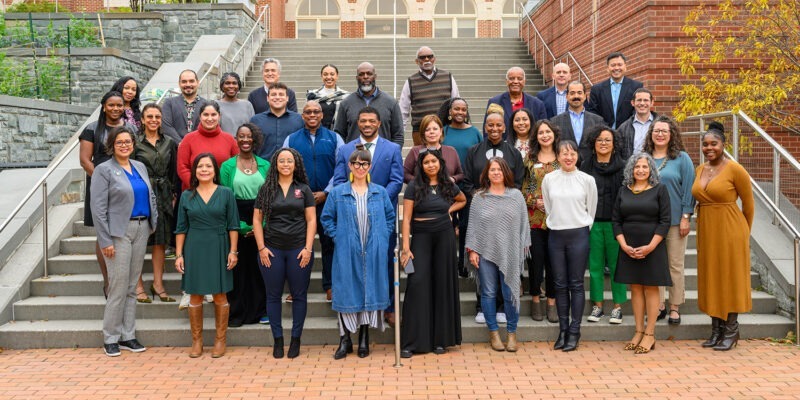
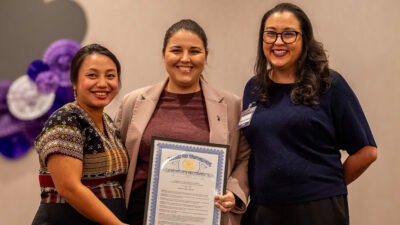
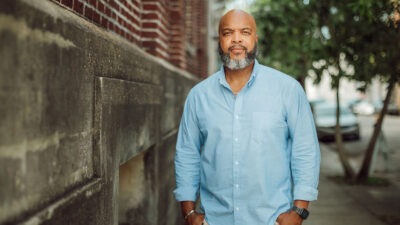
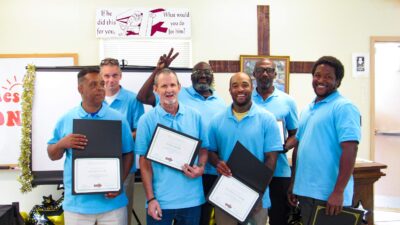

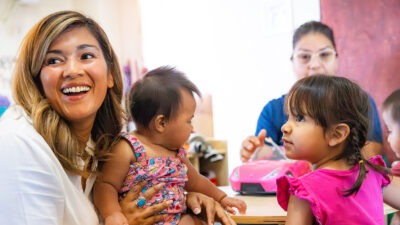
Comments